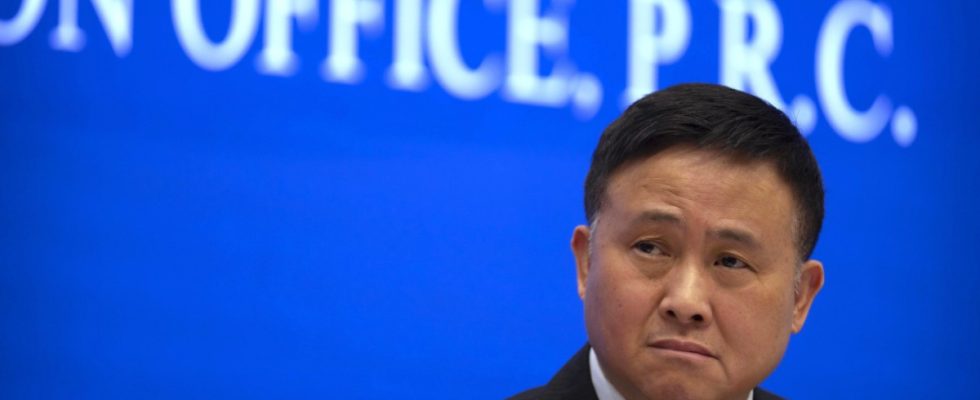A mammoth task awaits him: The experienced financial expert Pan Gongsheng has been appointed head of the Chinese central bank. He thus has a key role in stimulating the recently weakening economy in the second largest economy in the world. Observers see the step as a sign that the Chinese leadership intends to maintain its current monetary policy line.
The 60-year-old, who has worked for the central bank since 2012 after working for various state banks, replaces Yi Gang, who reached official retirement age at 65. Among other things, he was previously responsible for monitoring China’s currency reserves of three trillion dollars. Pan is considered a technocrat who pushed reforms in the banking sector and exchange rates. In other areas, such as the real estate sector, however, he pursued a risk-averse approach that is intended to prevent the overindebted balance sheets of real estate groups from further inflating. The appointment came as no surprise, as Pan had already been installed as party chief of the central bank in early July and has since met with various international colleagues as well as US Treasury Secretary Janet Yellen.
After Pan’s appointment, economics professor at Cornell University, Eswar Prasad, is hoping for “gradual, market-oriented reforms that will further liberalize the financial markets and the exchange rate and promote the opening of capital transactions.” In view of the many economic challenges and the “enormous political constraints to which the central bank is subject”, however, Pan’s room for maneuver is limited. Unlike in the US or the EU, the central bank in China is not independent but is subject to government control. If Pan wants to lower interest rates, for example, he needs the approval of China’s Prime Minister Li Qiang.
Calls for stimulus measures are increasing given the weak growth numbers in the first half of the year. As recently as Monday, the Communist Party’s Politburo, chaired by Xi Jinping, indicated that the government would likely cut interest rates further, accelerate infrastructure bond issuance and relax regulation of the key real estate market. In view of the high national debt, however, analysts are not assuming a massive economic stimulus package.

